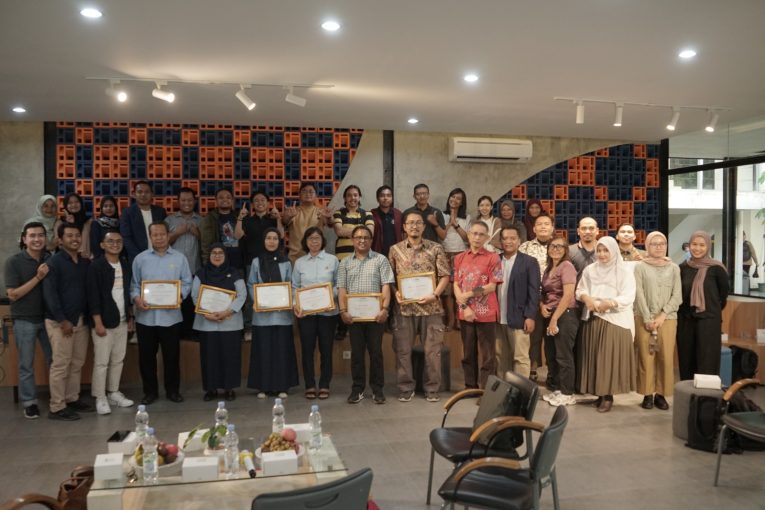
Yogyakarta, 12 June 2024—The PPM Magister Studio held Publicness Forum #2 to increase collaboration in treating mental health. This time’s Publicness Forum took the theme “Collaboration between the Government, NGOs and the Community to Realize Inclusive and Sustainable Mental Health.” This event opened a discussion panel which resource persons from a variety of stakeholders attended, especially the government and NGOs who have important contributions regarding mental health, such as Karel Tuhehay, the Head of the Mental Health and Disability Department of the SATUNAMA Yogyakarta; Prahesworo Anantia Hadinoto from the External Division KPSI Simpul Yogyakarta; Lusina Siwi Lastriningsih, SKM., M. Kes., Functional Young Policy Analyst, Mental Spiritual Development Bureau, Regional Secretariat of DIY; Novita Ira Widari, S. Sos., the Head of the DIY Bina Karya and Laras Social Rehabilitation Center; Endang Pamungkasiwi, SKM., M. Kes., the Head of the Public Health Division of the DIY Health Service; Drs. Suhirman, Deputy Head of the DIY Education, Youth, and Sports Department.
This event is also a manifestation of efforts to achieve the 17th Sustainable Development Goals (SDGs) regarding Partnerships for The Goals, through collaboration with various parties. In this forum, various things were discussed, starting from the current role of each stakeholder and the various challenges faced.
Lusina Siwi Lastriningsih, SKM., M. Kes., said that the government has tried to synergize elements related to mental health through the Community Mental Health Implementation Team (Tim Pelaksana Kesehatan Jiwa Masyarakat/ TPKJM). However, there are complicated challenges because there is no mutual understanding and bureaucratic staff change in mental health handling. “It is difficult to synergize between OPDs because they feel that they have no role in handling mental health, there is no mutual understanding, plus the people in each OPD continue being change every once in a while, hence, when there is a change, they have to re-start the process from the beginning,” he said.
Apart from those challenges, Endang Pamungkasiwi, SKM., Novita Ira Widari, S. Sos., and Drs. Suhirman also conveyed the challenges related to government limitations. These challenges include a lack of human resources, a lack of budget, a large number of people with Psychological Disabilities (ODDP) who come from outside the DIY region, a lack of facilities, and so on. This increases the urgency of collaboration in mental health services.
Karel Tuhehay expressed the importance of collaboration to fill gaps in mental health service efforts. Apart from that, he also advised that there is a joint task that must be carried out in the future, namely advocacy efforts to show the urgency regarding mental health. “We, NGOs, and the government must be able to advocate so that mental health becomes the same issue as other diseases because it becomes an obstacle to providing budgets and facilities,” he concluded.
This statement supports the 10th point of the SDGs effort, namely Reduced Inequalities.
